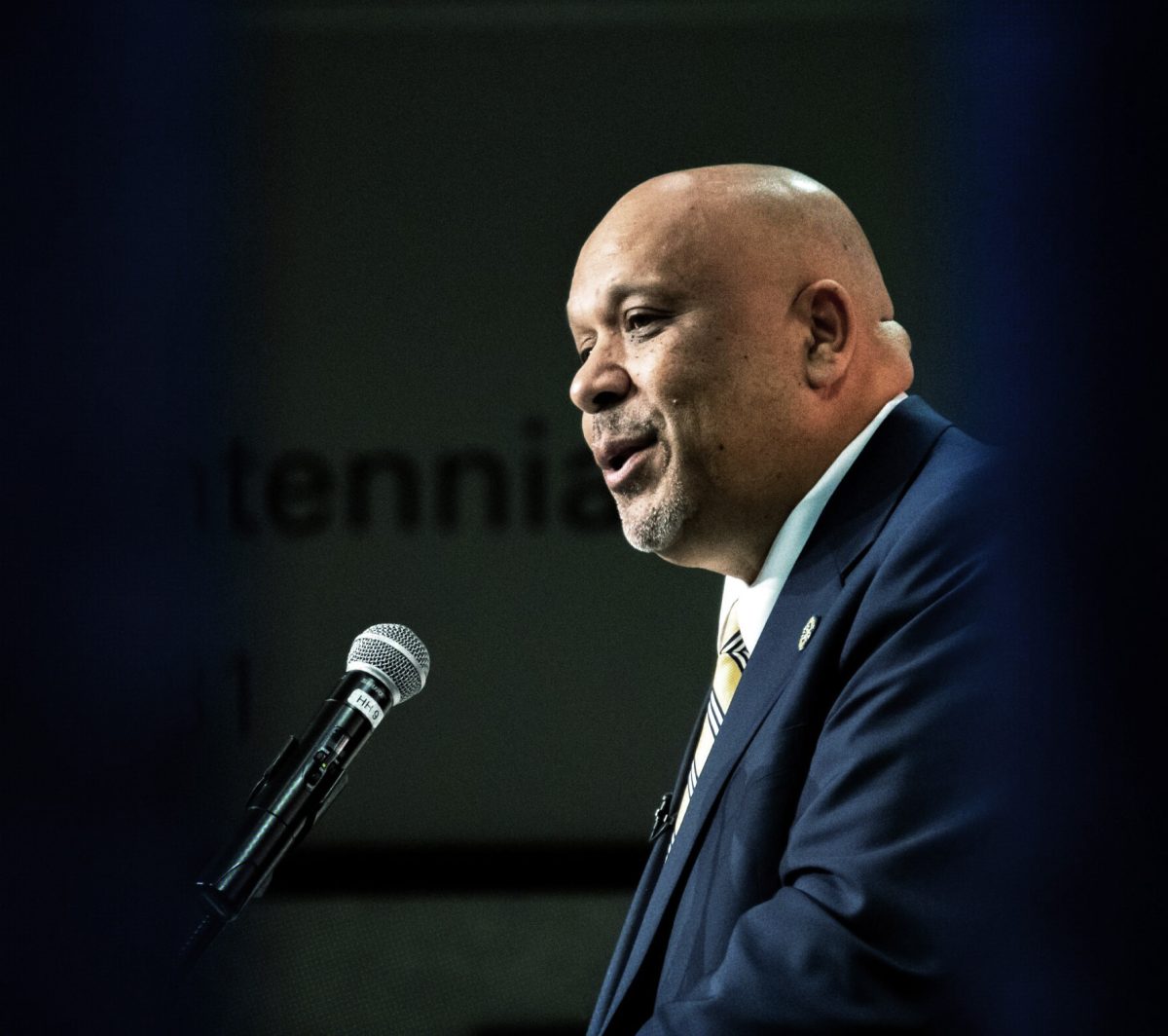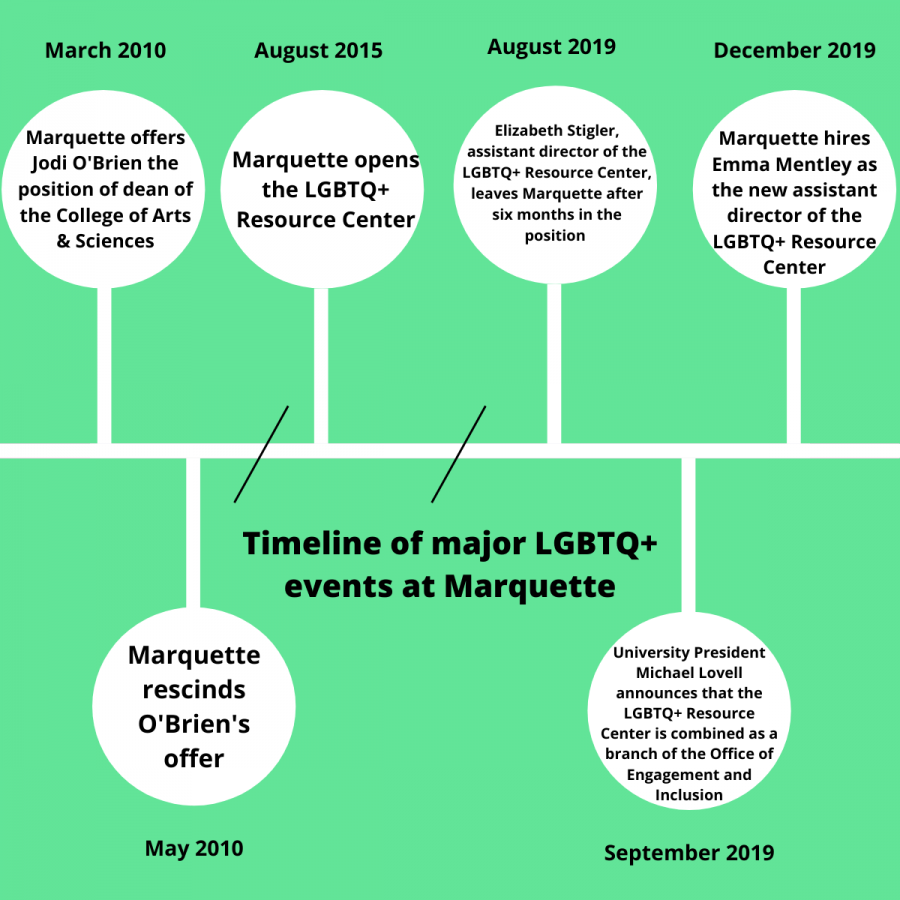Editor’s Note: As an executive board, we acknowledge that the Marquette Wire is registered as a student organization in MARQUEE. However, the Marquette Wire is still considered a student-run independent media organization.
With over 300 student organizations at Marquette University, students have the opportunity to get involved with causes and groups that they’re passionate about. However, with new changes to the organization renewal process, the university is severely stifling organization autonomy and student voices.
The Marquette Office of Engagement and Inclusion informed undergraduate student organizations on campus that it would be moving the organization renewal process from the spring semester to the fall semester during the fall 2020 semester, but the message from OEI did not explicitly mention moving elections from the spring to the fall. However, in the email announcement sent out Nov. 1, OEI announced “Student organizations should have had or should be currently in the process of elections and transition of officers for the Spring 2022-Fall 2022 semesters by the time of renewal.”
The renewal process for student organizations requires leaders to update their constitutions if they are two years old, update their MARQUEE pages — a website to connect students to organizations and on-campus events — as well as complete several training sessions. These training sessions are related to navigating Marquee, learning about resources for student organizations, becoming informed of how to be a lifesaver and understanding Title XI, hazing, and being a bystander, as well as transition the elections of officers to the fall semester.
Apart from completing the scheduled training sessions throughout November, student organizations have until Dec. 6 at 11:59 p.m. to complete the renewal process. If student organizations fail to complete all the steps in the renewal process this semester, they will not be eligible to request and receive student organization funding allocations between January 2022 and December 2022, according to the email from OEI.
While much of the renewal process for student organizations is the same, changing the time of elections is new and can harm some groups.
Oftentimes, student organizations follow the academic calendar and hold elections in the spring to elect leaders for the following school year. Doing so allows officers who are elected in the spring to hold their position for the entire academic year beginning in the following fall semester. Now, however, with organizations being forced to hold elections in the fall, student leaders who hold positions for a year will hold it from the beginning of the spring semester to the end of the following fall semester.
Before the Nov. 1 email announcement, OEI did not give any prior notice to student organizations that it was implementing this change; this gives organizations only about a month to change their constitutions and hold elections. Expecting groups to implement this change within such a short time is unfair.
Additionally, requiring all student organizations to make these changes in order to be approved for organization renewal significantly stifles the autonomy of organizations to implement processes and rules that are best suited for their unique group.
Student organizations are very diverse, having different ideas and processes that work best for them. For small organizations with low memberships, it may be difficult to have such a quick turnover of officers.
Additionally, making student organizations change their timing of elections forces older students out, as they won’t be able to hold a position for the entire term if they graduate in the spring. This may propel younger students into positions they may not be ready for, or may not want to hold. Not everyone wants to be in a leadership position, but OEI’s required change restricts older students who do want to be in leadership roles from the same opportunity.
The impact this change has on smaller organizations, such as organizations with less than 10 students, is exacerbated by the university’s lack of support and dedicated promotion of them. Without helping to promote smaller organizations, these groups have more challenges in recruiting students to join; this leads to issues with larger departments, such as changing the timing of elections.
Smaller organizations involved in Multicultural Student Council especially feel these effects, and they have to fulfill other requirements from OEI to maintain status as an organization, such as hosting multicultural events.
Additionally, many multicultural organizations have had to use other routes to get recognition from the university due to the lack of support, such as the Native American Student Association and the Black Student Council leading protests to Zilber Hall last year, demanding the administration make changes to support Indigenous and Black students on campus.
In order to uplift student voices the university must take into account the diversity across organizations, and acknowledge that they have differing needs.
Students should have the ability to make decisions about rules that are appropriate and effective for themselves. They are the ones leading the organizations every day, and should have the right to make decisions that are best for their organizations.
Correction: A previous version of this story incorrectly stated that the Office of Engagement and Inclusion informed student organizations during the fall 2021 semester that it’d be moving the organization renewal process from the spring to the fall.
The story has been updated to reflect that OEI informed student organizations of the change during the fall 2020 semester.
The Wire regrets this error.
Editorial topics by the Marquette Wire are decided at weekly meetings between members of the executive board. The editorial is crafted with leadership by the executive opinions editor. The executive board consists of the executive director of the Wire, managing editor of the Marquette Tribune, managing editor of the Marquette Journal, general manager of MUTV, general manager of MUR and ten additional top editors across the organization.








